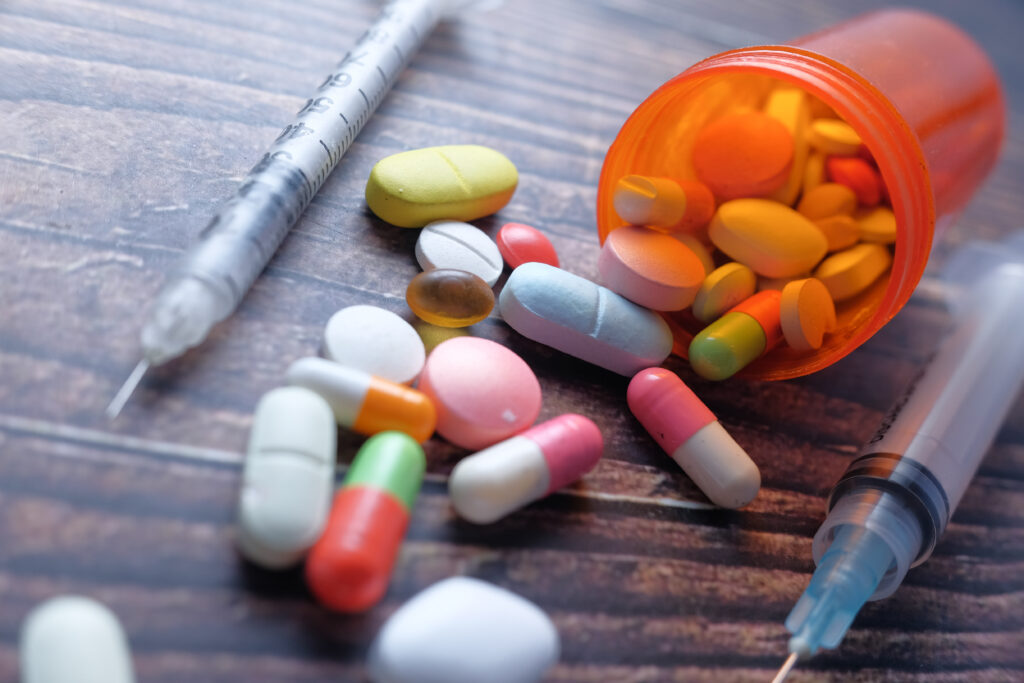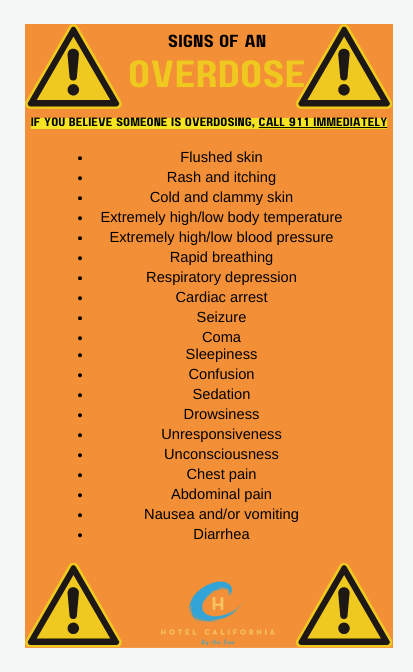How long does it take to recover from an Overdose?
Overdose. Overdose is defined as taking more than the recommended amount of a medicine or drug. A drug overdose happens when a person takes too much of a drug or a combination of drugs, leading to damage or even fatality. For decades now the U.S. has been plagued with a drug overdose epidemic. And more recently, from 2019-2020, the U.S. experienced an estimated 31% increase in overdose-related deaths. According to the National Institute of Health, over 900,000 people have died from overdose deaths in 2020.

Other words used to describe overdose include drug toxicity or drug poisoning. An overdose is a serious condition and is considered a medical emergency. There are two different types of overdoses: accidental overdose and intentional overdose. Accidental overdose can happen due to mistiming of dosage of a medication, overconsumption of a medication without knowing the dangers and using multiple substances at the same time. Intentional overdose is when a user purposefully takes too much medication in an attempt to end their life.
Overdoses can be fatal or non-fatal. Either way, an overdose can cause lasting or permanent damage to a person’s brain and body. An overdose happens when a person takes too much of a drug or takes a combination of two or more illicit substances making the drug or drugs more potent and resulting in unpredictable effects. Because of the overload of drugs, the body is unable to cope with or manage the processing of the drugs which can cause adverse reactions or a build-up of toxicity leading to damage in the body. All drugs can cause overdose including medications prescribed by a physician.
Dangers of Overdose
All drug misuse can lead to some form of brain injury. In severe cases of hypoxic brain injury, there is a lack of oxygen to the brain, which can cause someone to overdose. It can result in mild to severe impairment of movement, balance and coordination. It can even affect other aspects such as hearing, vision, and spoken or written communication. Any impairment to the brain will also cause thinking, concentration and memory damage.
Young children and elderly adults are at the most risk of drug overdose. Children may accidentally find medication at home, thinking they might be candy and take them unaware of how dangerous it can be. Elderly adults with impaired mental abilities are also prone to accidentally taking medications they may find in the house. They are also more likely to be taking multiple types of medications and sometimes are not aware of any drug interactions.
There is no cure for overdose. There are some medications and treatments that may help with the symptoms. Naloxone is a popular opioid overdose medication that works by temporarily blocking the symptoms of overdose long enough for the user to seek medical attention and get emergency care. If medical attention is not found in time, there is a high chance the user can go into a coma and experience permanent brain damage.

How long does an Overdose take to recover?
How long does it take to recover from a drug overdose? The length of recovery is dependent on many factors. How quickly medical attention is received after an overdose can be the determining factor between a life and death situation. Those who do not receive immediate medical attention are less likely to recover from an overdose successfully. Long-term and short-term side effects of an overdose can also play a significant role in overdose recovery. Three main factors determine the duration of recovery: dosage, type of drug and history of abuse.
A stronger dose of a drug or multiple drugs can cause symptoms to occur more quickly as well as last much longer. The type of drug can determine what kind of damage may be caused. Permanent and semi-permanent damage includes liver and brain damage, as these organs are most often directly impacted by drug use. A person with a history of drug abuse may be more sensitive or in some cases more tolerant to drug use. This can make recovery from drug use or overdose a more lengthy process.
Some drugs are also more potent compared to others, which can result in a longer recovery period. The long-term effects of drug overdose can result in incurable or reversible damage. Factors such as mental illness, brain injury, respiratory problems, cardiovascular disease, liver disease, kidney disease, and diminished physical and cognitive functioning are all aspects of health affected by overdose. Some users are able to heal from damage to these health conditions while others aren’t as fortunate.
In general, it can take anywhere from a few weeks to a few months and even up to a year to recover from a drug overdose. The recovery process depends heavily on the extent of damage caused by the drug overdose.
What are the general signs a person may be experiencing an overdose?
- Issues with general vital signs such as body temperature, heart rate, respiratory rate and blood pressure
- Sleepiness, confusion and coma
- The skin can be cool, sweaty, hot or dry. The skin can also give off a pale or blueish tint.
- The development of seizures
- Chest pain caused by heart or lung damage
- Shortness of breath
- Abdominal pain, nausea vomiting and diarrhea
Check Your Insurance Coverage for FREE
Find out if your insurance covers addiction treatment in minutes. We accept most insurance!
Types of Drug Overdose
- Alcohol Overdose. Also known as alcohol poisoning. Alcohol overdose occurs when alcohol levels in the bloodstream are above .16%. At this level of BAC, users can experience blackouts and impairments of coordination and body function. Alcohol overdose symptoms include unconsciousness, drowsiness, seizures, vomiting, lowered heart rate, irregular breathing, clammy blue skin and extreme weakness.
- Opioid Overdose. Opioid overdose is the largest population of drug overdose in the U.S. With drugs like heroin and fentanyl leading the way. Opioid overdose poses a major public threat and has become an ongoing epidemic for the past decades. Prevention medication such as naloxone has been used to help reverse overdose in time for users to seek professional medical attention. Opioid overdose symptoms can include being unable to stay awake, gurgling sounds, unconsciousness, vomiting, pinpoint pupils, limp body, blue-ish skin, respiratory depression and lowered heart rate.
- Sedative Overdose. Sedative substances affect the central nervous system and are usually designed as short-term solutions due to their risk for dependence. Symptoms of sedative overdose include unconsciousness, drowsiness, slurred speech, blurred vision, extreme weakness and mental stupor.
- Stimulant Overdose. Stimulant drugs such as meth, crack, cocaine and amphetamines used to treat conditions such as ADHD are powerful substances. Once they are consumed, the effects often wear off quickly. They produce euphoric effects and feelings of high energy. Stimulant overdose symptoms include mood swings, confusion, anxiety, paranoia, irritability, aggression, tremors, vomiting, chest pain, high blood pressure, psychosis and hallucinations.
- Synthetic Drug Overdose. Also known as designer drugs, these man-made substances include ecstasy, spice, bath salts and LSD variations. These types of drugs are very dangerous because they are not standardized, controlled, or regulated. Because of this, they can contain different variations of chemical potency. Synthetic drug overdose symptoms include rapid breathing, anxiety, rapid heart rate, sleep problems, high body temperature, high blood pressure, vomiting, seizure, psychosis and hallucinations.
Risk Factors that Influence Drug Overdose
- Age (younger and elderly people are more prone to overdose due to taking many different types of medications and being unaware of dangers)
- Substance abuse
- Polysubstance use (mixing drugs)
- How much of the drug was taken
- Method of drug administration
- History of substance abuse
- Body weight and height
- Overall health conditions (presence of other medical conditions)
- Gender (men are more likely than women to overdose. Men age 45-54 often abuse opioids, while men age 25-34 often abuse heroin)
- Economic status (people with lower income are statistically more likely to experience overdose)
- Mental illness
- Doctor shopping
- The use of illicit street drugs
Reach out to Hotel California by the Sea
We specialize in treating addiction and other co-occurring disorders, such as PTSD. Our Admissions specialists are available to walk you through the best options for treating your addiction.
Treatment for Substance Addiction and Overdose
Drug overdose is a serious and dangerous condition. Depending on the situation, an overdose can lead to lasting damage or even death. At Hotel California by the Sea, our programs provide those who abuse substances the resources and care they need to overcome their addiction. Working through treatment is a way to help prevent drug overdoses from happening.
Our detox, residential, PHP and IOP programs are uniquely planned for each client. We specialize in co-occurring mental health conditions as well as offering evidence-proven treatments such as CBT, group therapy and family therapy. Hotel California by the Sea provides an all-inclusive approach to treating substance use disorder by addressing the physical, emotional and psychological aspects of addiction.
References:
https://www.addictioncenter.com/drugs/overdose/
https://www.banyantreatmentcenter.com/2022/09/29/how-long-it-takes-to-recover-from-overdose-texas/
https://www.overdoseday.com/overdose-basics/
https://npaddictionclinic.com/blog/how-long-does-it-take-to-recover-from-an-overdose/
https://www.emedicinehealth.com/drug_overdose/article_em.htm
https://www.samhsa.gov/medications-substance-use-disorders/medications-counseling-related-conditions/opioid-overdose
